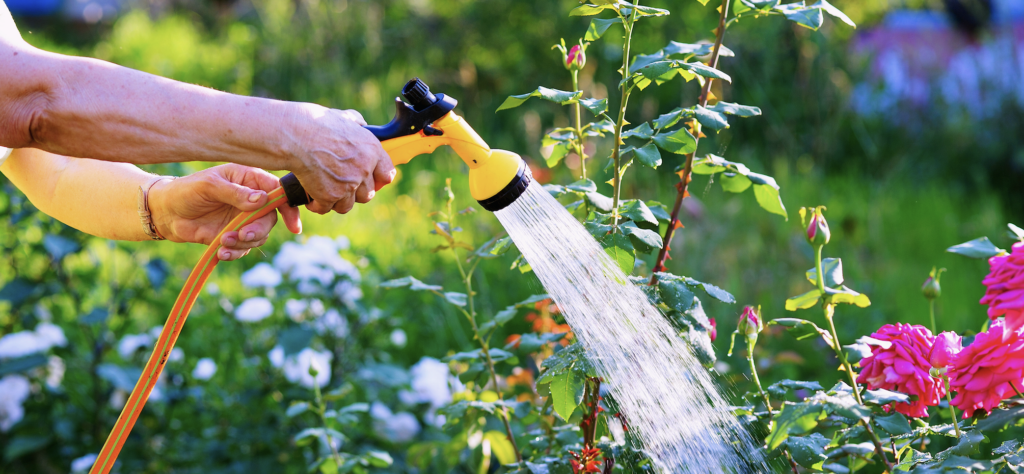The U.S. Environmental Protection Agency (EPA) offers the following tips to save water as the gardening season gets underway this year.

1. Consider planting more trees, shrubs, ground covers, and less grass. Shrubs and ground covers provide greenery for much of the year and usually demand less water.
2. Use native plants in flower beds. Native plants have adapted to rainfall conditions in New England and often provide good wildlife habitat.
3. Cluster plants that require extra care together to minimize time and save water.
4. When mowing your lawn, set the mower blades to 2-3 inches high. Longer grass shades the soil improving moisture retention, has more leaf surface to take in sunlight, allowing it to grow thicker and develop a deeper root system. This helps grass survive drought, tolerate insect damage and fend off disease.
5. Only water the lawn when necessary. If you water your lawn and garden, only do it once a week, if rainfall isn’t sufficient. Avoid watering on windy and hot days. Water the lawn and garden in the morning or late in the evening to maximize the amount of water which reaches the plant roots (otherwise most of the water will evaporate). Use soaker hoses to water gardens and flower beds. If sprinklers are used, take care to be sure they don’t water walkways and buildings. When you water, put down no more than 1 inch (set out a empty cans to determine how long it takes to water 1 inch) each week. This watering pattern will encourage more healthy, deep grass roots. Over-watering is wasteful, encourages fungal growth and disease, and results in the growth of shallow, compacted root systems that are more susceptible to drought and foot traffic. If an automatic lawn irrigation system is used, be sure it has been properly installed, is programmed to deliver the appropriate amount and rate of water, and has rain shut-off capability.
6. Apply mulch around shrubs and flower beds to reduce evaporation, promote plant growth and control weeds.
7. Add compost or an organic matter to soil as necessary, to improve soil conditions and water retention.
8. Collect rainfall for irrigation in a screened container (to prevent mosquito larvae growth).
10. When washing a car, wet it quickly, then use a bucket of water to wash the car. Turn on the hose to final rinse (or let mother nature wash your car when it rains).
11. Always use a broom to clean walkways, driveways, decks and porches, rather than hosing off these areas.
For more information, please visit www.epa.gov.

